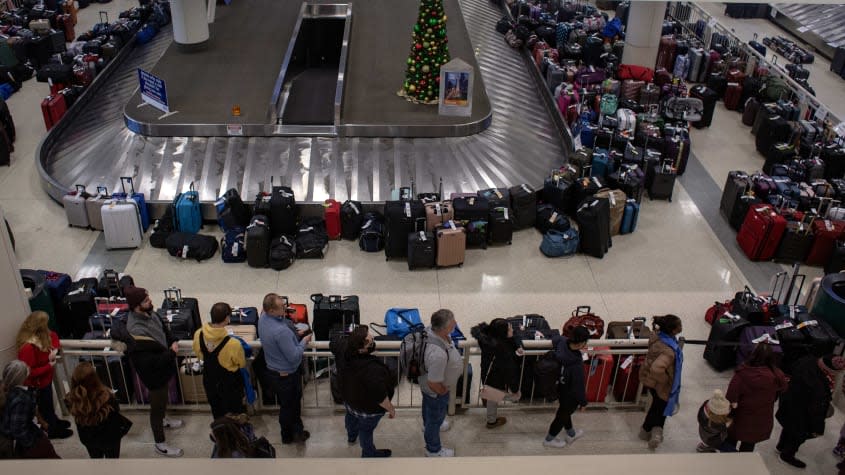Flying blind: Southwest's epic meltdown

The smartest insight and analysis, from all perspectives, rounded up from around the web:
After canceling nearly 17,000 flights over the Christmas holiday, Southwest Airlines may have gained the distinction of creating "the worst service disruption" ever experienced by a major U.S. carrier, said Joseph Guinto in Texas Monthly. This was "an unforced error" with deep roots in years of Southwest management philosophy. The airline, while beloved by customers, was known for its "penny pinching," and legendary founder and CEO Herb Kelleher believed that Southwest "didn't need to buy every 'shiny new' tech toy on the market." Southwest's "open seating" is well known; less well known is that with its rigid, aging reservation systems, "Southwest couldn't have assigned seats even if it wanted to" until just a few years ago. Long before this disaster, "Southwest's top brass" knew that its flight-tracking and scheduling software "could be overmatched in the event of an unusual weather or air traffic event." Southwest has long been a "shameful" example of a company "incurring technical debt," said Zeynep Tufekci in The New York Times — the fancy term for corporations trying to make do with old and deficient software. And without greater accountability, "we may see more fiascoes like this one."
The Dallas-based carrier can't be blamed for "the magnitude of the storm" that initially triggered the debacle, said Michael Hiltzik in the Los Angeles Times, but one has to ask why the airline performed "so much worse than its rivals" — on some days accounting for 90 percent of all cancellations. The answer is that Southwest is an extreme example of corporate thinking that's focused on "handouts to shareholders instead of spending on workers and infrastructure. There's not enough give in the system, so when crisis comes, it doesn't bend, but breaks." When it could have been improving its systems, the airline simply took out more profits. Just weeks earlier, the airline lifted its dividend and launched a $2 billion share buyback plan. The 11 members of Southwest's board have "evaded the finger-pointing" — though they are "the guiltiest of the guilty parties."
The airline has also let itself down by abandoning the "'people first' culture" that once defined the way it dealt with customers and staff, said Beth Kowitt in Bloomberg. Executives should follow Southwest's late founder's advice and "listen to employees' ideas on how to improve operations." Just don't bet on Southwest, or any other airline, listening to its customers, said Kevin D. Williamson in The Dispatch. The reality is that "in the great calculus of the airline industry, the typical passenger — his plans, his interests, his convenience — doesn't amount to squat." That's because most customers make their decisions on which airline to fly based almost entirely on price. That encourages the airlines' continued incompetence and mismanagement, despite billions of dollars in federal bailouts. "An airline isn't going to spend $100 to do a good turn for a flier who will choose a different airline next time around to save $12.42." Southwest has taken this principle to heart, and now what was once one of the most admired companies in the U.S. is known for "treating its customers with contempt and cruelty."
This article was first published in the latest issue of The Week magazine. If you want to read more like it, you can try six risk-free issues of the magazine here.
You may also like
7 brutally funny cartoons about Kevin McCarthy's speakership
NASA's Webb telescope confirms existence of exoplanet for the 1st time


